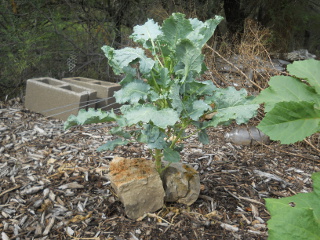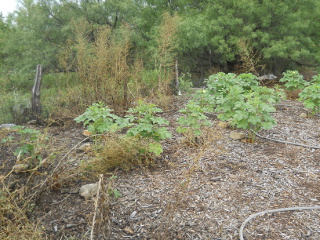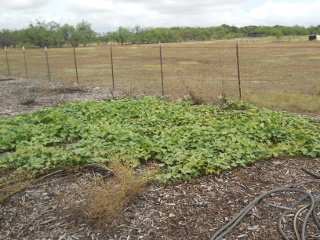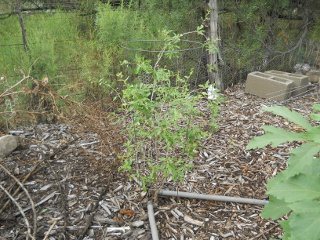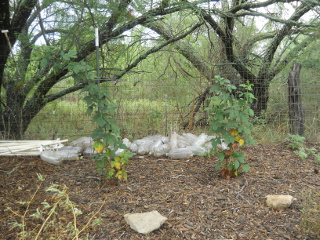Some time ago I had come across someone giving the example that as long as someone who desires homosexual relations doesn’t act on them, they are okay in God’s eyes, the idea being that if someone abstains from an outward manifestation of sin, they are keeping themselves from actual sin. This idea is what prompted this blog post.
The Bible speaks otherwise of this idea, and calls this concupiscence.
Webster’s 1828 dictionary defines this as:
Lust; unlawful or irregular desire of sexual pleasure. In a more general sense, the coveting of carnal things, or an irregular appetite for worldly good; inclination for unlawful enjoyments.
This is not just in the sexual realm — it covers all carnal desires of the heart.
Here is where concupiscence is mentioned in the Bible:
Rom 7:8 – “But sin, taking occasion by the commandment, wrought in me all manner of concupiscence. For without the law sin was dead.“
Puritan commentator John Gill says of the concupiscence here:
“The law forbidding every unclean thought, and covetous desire of unlawful objects, sin took an occasion through these prohibitions to work in him, stir up and excite concupiscence, evil desire after all manner of things forbidden by the law; hence it is clear that not the law, but sin, is exceeding sinful.”
Col 3:5 – “Mortify therefore your members which are upon the earth; fornication, uncleanness, inordinate affection, evil concupiscence, and covetousness, which is idolatry:“
Here Dr. Gill says it
“includes every fleshly lust and inordinate desire, or every desire after that which is not lawful, or does not belong to a man; as what is another’s property, his wife, or goods, or anything that is his.”
1 Thess 4:3-5 – “3 For this is the will of God, even your sanctification, that ye should abstain from fornication: 4 That every one of you should know how to possess his vessel in sanctification and honour; 5 Not in the lust of concupiscence, even as the Gentiles which know not God:“
Again Dr. Gill, regarding fulfilling the lust of concupiscence:
“for a man so to possess his vessel, is to cherish the sin of concupiscence, the first motions of sin in the heart, by which a man is drawn away, and enticed.”
Acts of sin are only the outward workings of the evil—yes, sinful—desires of the heart. In fact, sin starts in the heart:
Prov 4:23 – “Keep thy heart with all diligence; for out of it are the issues of life.“
Luke 6:45 – “A good man out of the good treasure of his heart bringeth forth that which is good; and an evil man out of the evil treasure of his heart bringeth forth that which is evil: for of the abundance of the heart his mouth speaketh.
And here are scriptures talking about the sins of the heart, which is by nature sinful:
Gen 6:5 – “And God saw that the wickedness of man was great in the earth, and that every imagination of the thoughts of his heart was only evil continually.“
Psa 28:3 – “Draw me not away with the wicked, and with the workers of iniquity, which speak peace to their neighbours, but mischief is in their hearts.“
Psa 58:2 – “Yea, in heart ye work wickedness; ye weigh the violence of your hands in the earth.“
Psa 101:4 – “A froward heart shall depart from me: I will not know a wicked person.“
Prov 6:18 – “An heart that deviseth wicked imaginations, feet that be swift in running to mischief,“
Prov 10:20 – “The tongue of the just is as choice silver: the heart of the wicked is little worth.“
Prov 21:4 – “An high look, and a proud heart, and the plowing of the wicked, is sin.”
Jer 4:14 – “O Jerusalem, wash thine heart from wickedness, that thou mayest be saved. How long shall thy vain thoughts lodge within thee?“
Matt 15:18-20 – “18 But those things which proceed out of the mouth come forth from the heart; and they defile the man. 19 For out of the heart proceed evil thoughts, murders, adulteries, fornications, thefts, false witness, blasphemies: 20 These are the things which defile a man: but to eat with unwashen hands defileth not a man.“
Acts 8:22 – “Repent therefore of this thy wickedness, and pray God, if perhaps the thought of thine heart may be forgiven thee.“
1 John 3:15 – “Whosoever hateth his brother is a murderer: and ye know that no murderer hath eternal life abiding in him.“
Finally, Puritan Thomas Manton has some words in regards to heart sin:
This is from Manton, vol xviii, sermons upon Proverbs x 20, sermon II, the full text which can be read here:
(4.) That we must make conscience not only of our words, but thoughts. Men are cautious in their speeches and how they discover themselves; but they think thoughts are free. No; heart-sins are sins as well as the sins of the tongue and life : Prov. xxiv. 9, ‘The thought of foolishness is sin’; they are contrary to the law of God. Therefore David saith, Ps. cxix. 113, ‘I hate vain thoughts.’ Usually we take more liberty in our thoughts than in our words and actions. Men will not rob, steal, murder, or assault the chastity of a neighbour’s wife; but let their hearts run riot in coveting, and that is theft in the heart; or lusting, and that is adultery in the heart: Mat. v. 28, ‘Whosoever looketh on a woman to lust after her, hath committed adultery with her already in his heart’; or malice and revenge, and that is killing in the heart.
And this is from Manton, vol xviii, sermons upon John i 29, sermons II, the full text which can be read here:
Others, if they would be freed from sin, they respect only the preventing the outward act, but you must abstain from the lust [desire] : 1 Peter ii. 11, ‘I beseech you, as strangers and pilgrims, abstain from fleshly lusts [desires], which war against the soul.’ If they look after the heart and inward man, it is some branch of sin, not the root, or the change of the heart, and so die impenitent. Evil practices do not flow from a present temptation, but an evil nature. All these lose their labour; they neither get rid of trouble nor prevent the act, nor are free from the breach of God’s law, but Christ would make a thorough cure.
May God change our heart to ones desiring Christ, His righteousness and holiness; may He keep our hearts pure, removing sinful desires; and may He grant us the desire and strength to pray and fight against the sinful desires of the heart!
— David






















